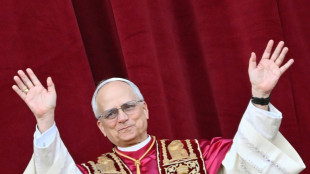-
 Timberwolves launch probe after fan's 'racially charged' abuse
Timberwolves launch probe after fan's 'racially charged' abuse
-
Giro over for Landa after high-speed opening stage crash
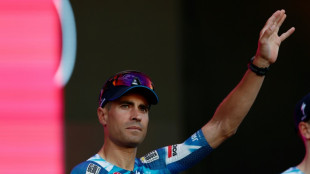
-
 US approves first at-home cervical cancer screening device
US approves first at-home cervical cancer screening device
-
FIFA Women's World Cup expanded to 48 teams from 2031

-
 Mitchell leads, Lowry charges and Rory five back at rainy Truist
Mitchell leads, Lowry charges and Rory five back at rainy Truist
-
Gauff holds nerve to join Sabalenka in Italian Open third round
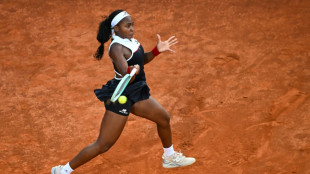
-
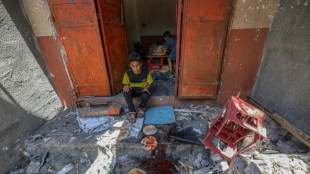 Israel not involved in Gaza food distribution under US aid plan: envoy
Israel not involved in Gaza food distribution under US aid plan: envoy
-
Margot Friedlaender, Germany's voice of Holocaust remembrance
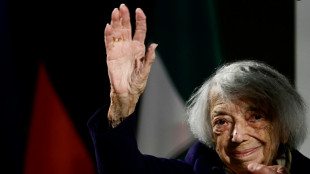
-
 Fallen giant Hamburg close in on top-flight redemption
Fallen giant Hamburg close in on top-flight redemption
-
Dozens of minors killed in Mexico cartel infighting
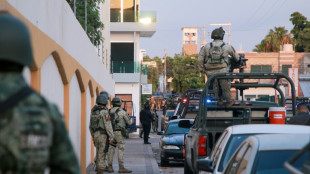
-
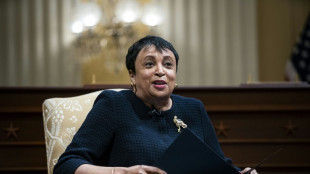 Trump fires librarian of US Congress
Trump fires librarian of US Congress
-
Spurs will show no fear against Man Utd in Europa League final: Van de Ven

-
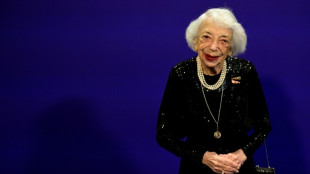 Renowned Holocaust survivor Margot Friedlaender dies at 103
Renowned Holocaust survivor Margot Friedlaender dies at 103
-
Woods, 16-year-old Charlie, misses out in US Open qualifier

-
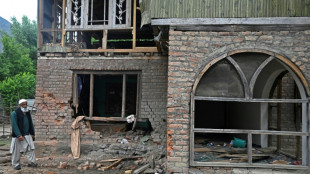 Pakistan says India has put neighbours 'closer to major conflict'
Pakistan says India has put neighbours 'closer to major conflict'
-
On patrol for jihadists with Mauritania's camel cavalry
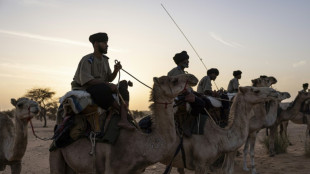
-
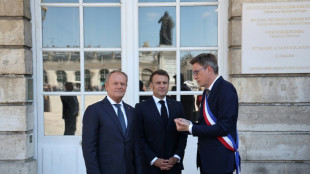 France, Poland sign treaty with mutual defence pledge
France, Poland sign treaty with mutual defence pledge
-
NATO chief seeks defence spending at 5% of GDP by 2032: Dutch PM
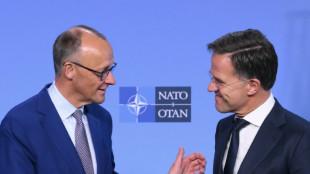
-
 La Rochelle head coach O'Gara suspended for five weeks
La Rochelle head coach O'Gara suspended for five weeks
-
Measles roars back in the US, topping 1,000 cases

-
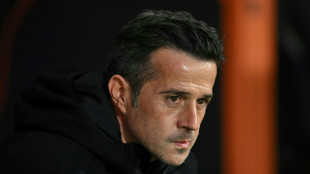 Fulham boss Silva refuses to rule out Saudi switch
Fulham boss Silva refuses to rule out Saudi switch
-
From Chicago to Chiclayo: Peruvian town hails adoptive son and pope
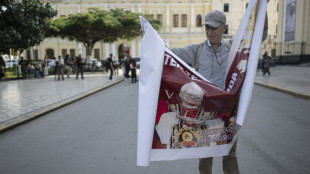
-
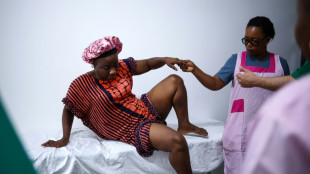 Ivorian women fight FGM with reconstructive surgery
Ivorian women fight FGM with reconstructive surgery
-
Pedersen wins opening stage of Giro d'Italia in Albania

-
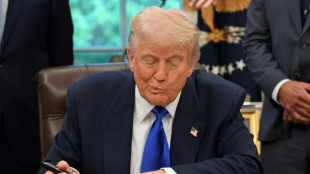 Stocks mixed despite hopes for US-China tariff talks
Stocks mixed despite hopes for US-China tariff talks
-
US, Swiss agree to speed up tariff talks
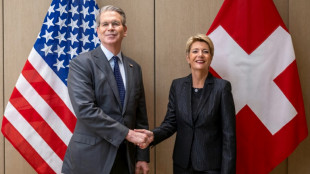
-
 Trump floats cutting China tariffs to 80% ahead of trade talks
Trump floats cutting China tariffs to 80% ahead of trade talks
-
Pedersen wins opening stage of Giro d'Italia

-
 Marc Marquez sets Le Mans lap record in French MotoGP practice
Marc Marquez sets Le Mans lap record in French MotoGP practice
-
Jungle music: Chimp drumming reveals building blocks of human rhythm

-
 Guardiola tells Man City stars to question their hunger after troubled season
Guardiola tells Man City stars to question their hunger after troubled season
-
Putin, Xi, Steven Seagal and missiles: Russia's Red Square parade
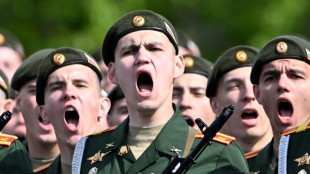
-
 Trump suggests lower 80% China tariff ahead of Geneva trade talks
Trump suggests lower 80% China tariff ahead of Geneva trade talks
-
Arteta wants Arsenal to use Liverpool guard of honour as title fuel

-
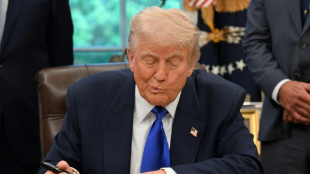 Stocks lifted by hopes for US-China talks
Stocks lifted by hopes for US-China talks
-
Putin hails troops in Ukraine as allies attend WWII parade
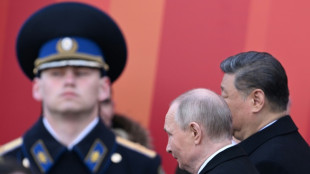
-
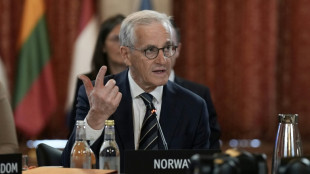 UK, northern European nations support Ukraine 30-day ceasefire: Norway PM
UK, northern European nations support Ukraine 30-day ceasefire: Norway PM
-
Activists hold 'die-in' protest at Soviet monument in Warsaw
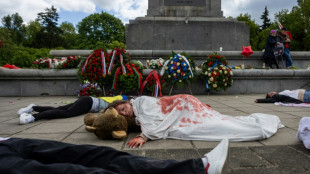
-
 Trump suggests lower China tariff, says 80% 'seems right!'
Trump suggests lower China tariff, says 80% 'seems right!'
-
Alonso confirms exit from Leverkusen at end of season

-
 Maresca ready for Chelsea's 'huge' Newcastle test
Maresca ready for Chelsea's 'huge' Newcastle test
-
Alcaraz, Sabalenka cruise to wins at the Italian Open
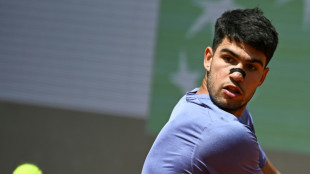
-
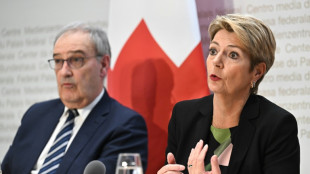 Swiss seize window of opportunity on Trump tariffs
Swiss seize window of opportunity on Trump tariffs
-
Amorim admits Man Utd 'problems' despite reaching Europa League final

-
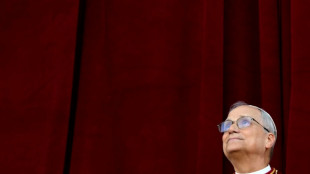 New Pope Leo XIV has mixed record on abuse: campaigners
New Pope Leo XIV has mixed record on abuse: campaigners
-
Xabi Alonso confirms exit from Bayer Leverkusen at season's end

-
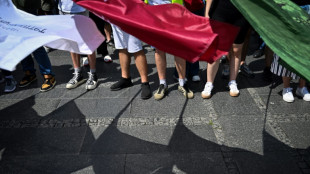 From blockades to ballots: Serbian students confront government
From blockades to ballots: Serbian students confront government
-
Kyiv's EU allies endorse tribunal to try Russian leaders
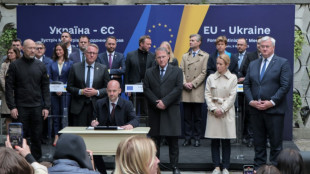
-
 Two men found guilty of chopping down iconic UK tree
Two men found guilty of chopping down iconic UK tree
-
Tennis, Twitter and marinated fish: Things to know about Pope Leo
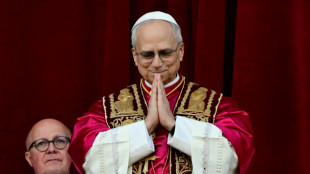
Afghan women TV presenters vow to fight after order to cover faces
Women television presenters on Afghanistan's leading news channels on Sunday vowed to speak up for their rights after being forced by Taliban authorities to cover their faces on air.
Since seizing power last year, the Taliban have imposed a slew of restrictions on civil society, especially on women and girls to comply with the group's austere brand of Islam.
This month Afghanistan's supreme leader Hibatullah Akhundzada issued a diktat for women to cover up fully in public, including their faces, ideally with the traditional burqa.
The feared Ministry for Promotion of Virtue and Prevention of Vice ordered women television presenters to follow suit.
After defying the order a day earlier, presenters on Sunday wore full hijabs and veils that left only their eyes on view across leading channels including TOLOnews, Ariana Television, Shamshad TV and 1TV.
"Today, they have imposed a mask on us, but we will continue our struggle using our voice," Sonia Niazi, a presenter for TOLOnews, told AFP after presenting a bulletin.
"I will never ever cry because of this order, but I will be the voice for other Afghan girls."
The diktat was an attempt to push women journalists to quit their jobs, Niazi said.
"It is like stripping off your identity," she added.
"Despite this we want to raise our voice... We will come to work until the Islamic Emirate removes us from public space or forces us to sit at home."
- 'Not by choice but force' -
Lima Spesaly, a presenter with news network 1TV, said it was difficult working under the Taliban government but she was ready for a fight.
"We will continue our struggle until our last breath," Spesaly told AFP, minutes before going on air.
TOLOnews director Khpolwak Sapai said the channel had been compelled to make its women presenters follow the order.
"I was called on the telephone yesterday and was told in strict words to do it. So, it is not by choice but by force," Sapai said.
Women presenters were previously only required to wear a headscarf.
Male journalists and employees at TOLOnews on Sunday wore face masks at the channel's offices in Kabul in solidarity with the women presenters.
Other female employees continued to work with their faces visible.
- 'Threat' -
Ministry spokesman Mohammad Akif Sadeq Mohajir said authorities appreciated that broadcasters had observed the dress code.
"We are happy with the media channels that they implemented this responsibility in a good manner," he told AFP.
Mohajir said authorities were not against women presenters.
"We have no intention of removing them from the public scene or sidelining them, or stripping them of their right to work," he said.
The supreme leader's decree ordered authorities to fire women government employees if they fail to follow the dress code.
Men working in government also risk suspension if their wives or daughters do not comply.
"It is a threat to girls because no girl wants her husband, father or brother to be punished because of her actions," said Niazi.
During two decades of US-led military intervention in Afghanistan, women and girls made marginal gains in the deeply patriarchal nation.
Soon after resuming control, the Taliban promised a softer version of the harsh Islamist rule that characterised their first stint in power from 1996 to 2001.
But they have since barred women from travelling alone and prevented teenage girls from attending secondary schools.
In the 20 years after the Taliban were ousted from office in 2001, many women in the conservative countryside continued to wear a burqa.
But most Afghan women, including television presenters, opted for the Islamic headscarf.
Television channels have already stopped showing dramas and soap operas featuring women, on the order of Taliban authorities.
X.Karnes--AMWN
